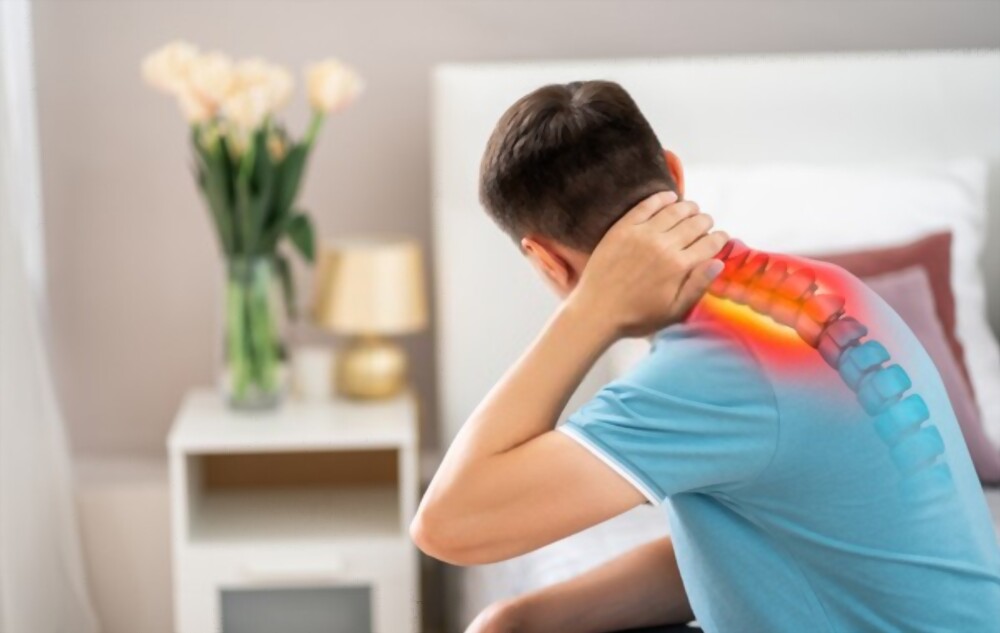Introduction-
Cervical spondylosis represents progressive degenerative changes that affect all the components of the cervical spine
Symptoms manifest as neck pain and stiffness and radicular symptoms may occur when there is compression of neural structures.
Neck pain is the second most common complaint after low back pain.
Risk factors
- the degree of severity is greater for males
- Repeated occupational trauma
- patients who carried heavy loads
- congenital bony anomalies
Etiology
- age-related degeneration is the primary cause
- to significant spinal trauma
- a congenitally narrow vertebral canal
- specific athletic activities
Clinical Presentation
- Non-specific neck pain – localised pain to the spinal column.
- radiculopathy – numbness, pain or loss of function.
- myelopathy – Numbness, incoordination, gait issues, weakness and bowel and bladder complaints
Pain- intermittent neck and shoulder pain occurs. For radiculopathy, the pain most often radiates to the upper limb, shoulder, interscapular region. Headaches may also occur.
Signs:
- tenderness
- Limited range of motion of neck
Symptoms:
- pain increases by neck movement
- Referred pain
- Cervical stiffness
- Numbness/ tingling
- weakness in upper limbs
- Dizziness
- Axial neck pain– stiffness and pain most severe in the upright position and relieved with bed rest. Neck motion, typically increases the pain. Radiating pain may occur
- Cervical radiculopathy- Radicular symptoms. Pain is exacerbated by movements
- Cervical myelopathy– Neurologic symptoms with or without neck pain
Medical Management
Non-surgical
- four- to six-week course of physiotherapy
- Pharmacologic agents (NSAID, oral steroids, use of muscle relaxants, etc)
- use of a soft cervical collar
- nightime cervical pillow to assist support.
Surgery
For patients with severe or progressive myelopathy, surgery is considered.
Also read- https://vcurehealthcare.com/read-about-prostate-cancer/





